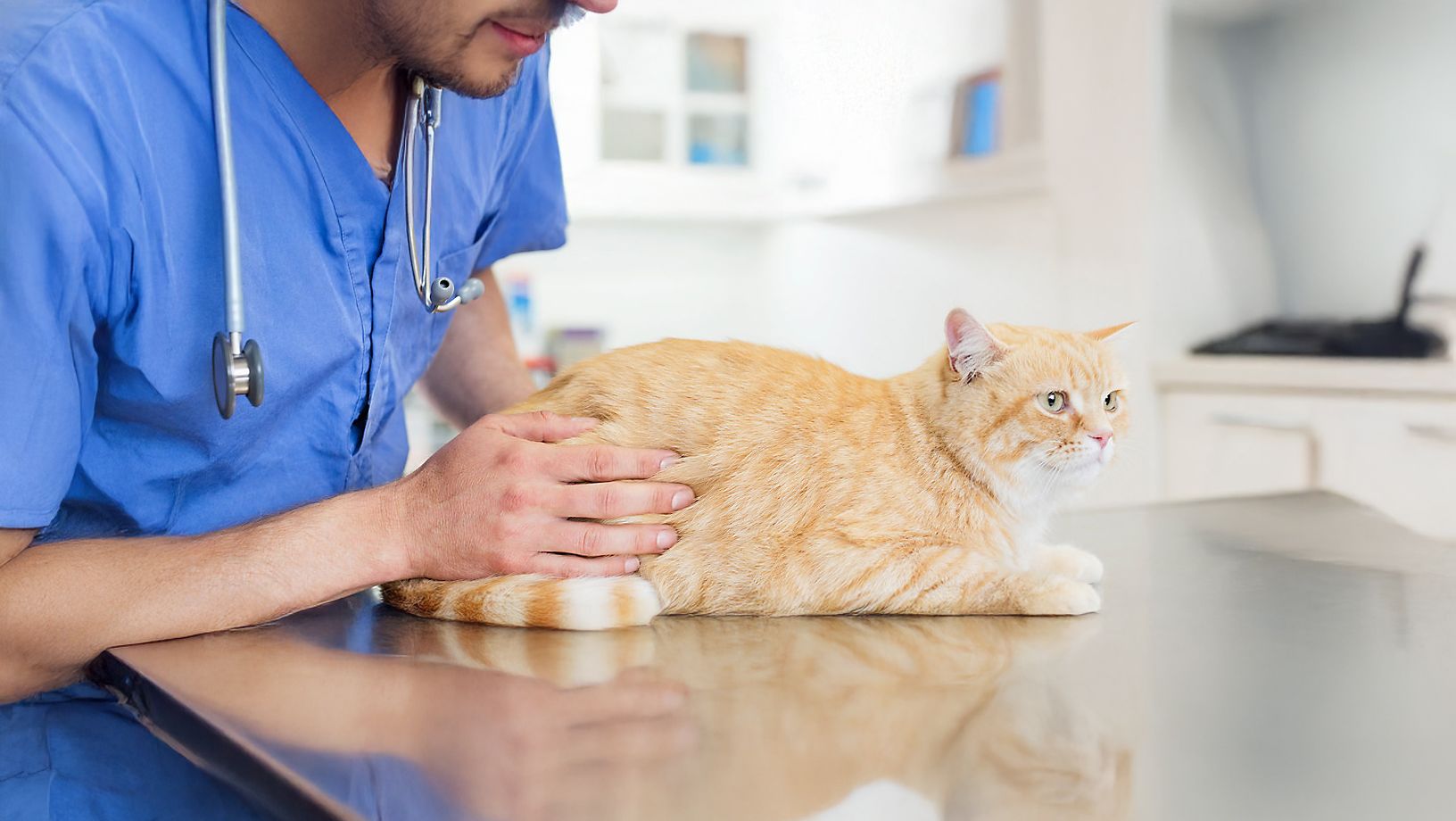What to Expect When You Take Your Cat to the Vet

In this Article
If you’ve never taken your cat for a checkup at the vet before, it can be a nerve-wracking experience for the both of you unless you know what to expect. Whether you’re concerned your cat has a medical issue, or you’re just bringing them in for a checkup, learn what typically happens when you take your cat to visit the vet.
When Should You Bring Your Cat in For a Checkup?
As a pet parent, you want to make sure your pet stays as healthy as possible, and that means taking them to be checked out by a veterinarian. But how often should you take your cat in for a simple checkup, and how do you know your cat’s symptoms warrant a visit to the vet?
Annual Checkups: When it comes to regular checkups, your pet should be seen by a vet at least once per year so your vet can give your pet a thorough examination. This is not a visit meant to target any specific issues, but is more meant for wellness and to make sure your kitty is looking good. This is also when cats usually get their annual vaccinations. Sometimes, there’s cause to see your vet even if your pet is doing just fine, like if they need special flea and tick treatment. Your vet may recommend testing blood and urine to detect medical conditions.
Kitten Visits: If you’ve recently welcomed a kitten into your family, you’ll need to bring them in to see a vet more frequently than an adult cat. Kittens generally need vaccines when they reach 6-8 weeks old, and then you’ll need to bring them back for subsequent visits to get their next round of shots every four weeks until they reach 16 weeks old. These visits can also include various tests and physical examinations.
Sick/Miscellaneous Visits: If you notice your cat having any concerning–or in some cases, just new–behaviors or symptoms, it’s a good idea to bring them in to be seen by your vet. From gastrointestinal or appetite changes to injuries, letting your vet take a look at them to check for any medical concerns will give you peace of mind even if they get a clean bill of health.
What to Expect When You Take Your Cat to the Vet
Before your visit, you should call your vet’s office and ask whether you need to bring a urine or fecal sample to the visit. Be sure to familiarize yourself with any medications or supplements your cat is taking, make a list of those medications/supplements, as well as the brand and type of cat food they eat and any other cat products you use for them.
When the veterinarian comes in, expect them to give your cat a nose-to-tail exam, including listening to your cat’s heart and lungs and a thorough feel of the belly region. The vet will ask you about your cat’s behavior, and whether you’ve noticed anything unusual. You should answer as honestly as possible and be thorough where appropriate. Don’t be shy about mentioning any odd-seeming behavior or physical symptoms. The time to ask questions is now, when there’s a pro in the room.
Your cat will may be feeling nervous or anxious due to the new surroundings and all the new things your vet is doing to check them out. When transporting your cat to the vet, a great choice is to use a cat carrier, which can help your cat feel more comfortable in a space of their own on the ride there.
Next, any sort of testing that is needed will be completed. If you’re only there for an annual checkup, they will recommend preventative testing, which means they will run tests to try to catch any possible hidden medical conditions before they progress. The vet may ask for a stool sample to check for parasite eggs, and they may recommend heartworm testing if you live in an area where the disease is commonly found.
Once testing is complete, if you’ve brought your cat in because they’re sick, the vet will probably suggest tips to help improve your cat’s health and/or diagnose and prescribe treatment as well as a follow-up plan for any physical health problems.
An Ounce of Prevention
Try these tips to stay on top of your pet’s health and make sure they are well-taken care of.
Feline nutrition is important. Feed your pet high-quality food in appropriate portions.
Guard against harmful diseases by seeing to it that your cat gets vaccinations and regular booster shots.
Protect your cat against parasites including ticks, worms and fleas; your vet can advise you on the best treatments.
Stay up-to-date on routine shots for adult cats.
Kittens should receive a number of vaccinations during their first year.
After that, the American Association of Feline Practitioners has endorsed the current vaccine guidelines for cats:
- FVRCP — A three-in-one vaccine that protects cats from feline distemper (panleukopenia) and upper respiratory diseases (feline herpesvirus and feline calicivirus).
- Rabies — A vaccine for a fatal infection that affects the central nervous system. Rabies can be passed to humans and other pets, primarily through the bite of an infected animal. Usually required by law, the vaccine is recommended based on local regulatory guidelines.
- Feline Leukemia (FeLV) — A vaccine for a virus that decreases immune system function and can cause serious illness and death. Infected cats may show no symptoms and can spread the disease to healthy unvaccinated cats; therefore, it is recommended that all cats under one year of age be vaccinated against FeLV and receive a booster vaccination one year later. After one year of age, the need for subsequent vaccination is determined by risk factors.
Always follow your veterinarian’s recommendations on which vaccinations are recommended for your cat based on age and lifestyle.
Information in this article is not intended to diagnose, treat or cure your pet and is not a substitute for veterinary care provided by a licensed veterinarian. For any medical or health-related advice concerning the care and treatment of your pet, contact your veterinarian.

